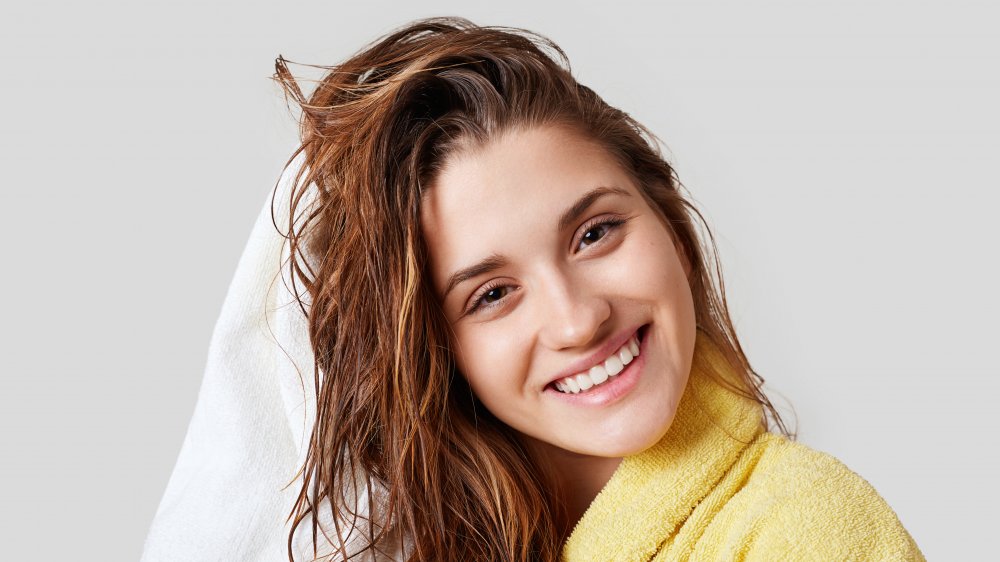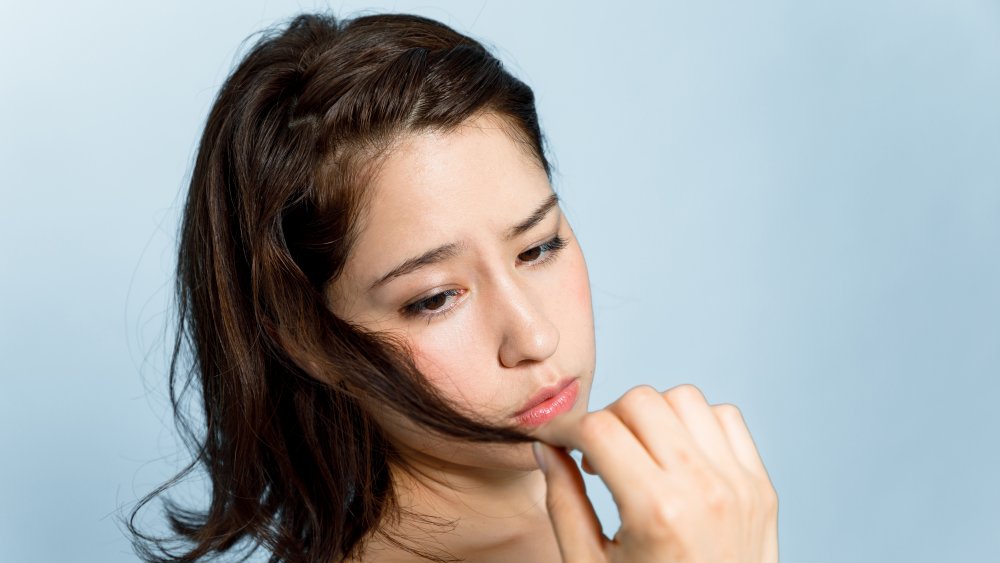The Real Reason You Should Skip Washing Your Hair During The Pandemic
If you're self-isolating, staying at home, and have no reason to see anyone, you might be interested in a little experiment: stop washing your hair and let your scalp get used to the feeling of being in its own natural oils, because some experts say that grease — also known as sebum — can be good for you (via Allure).
Skipping your regular shampoo means giving your scalp a chance to soak in the cholesterol, protein, and fat found in the sebum, which is said to provide a natural barrier against potentially harmful bacteria and fungi. The sebum can also act as a moisturizer for your hair fibers.
Trichologist Bridgette Hill tells Allure that our scalps began producing too much sebum when we started shampooing more often, because the more we wash, the more sebum the scalp produces. "Stripping natural oils can activate sebum production, resulting in overly oily hair that traps healthy bacteria and creates [the feeling of] 'dirty scalp and odor,' leading to a terrible habit of over-shampooing," she says.
Over-cleansing is one reason why scalps become dry and flaky, and hair becomes brittle. But Hill is careful to make the distinction between shampooing and rinsing, which is not the same thing. She says it's important to rinse your scalp and hair with water during the early days of your shampoo "detox" so you feel fresh.
Not everyone agrees that going shampoo-free is a good idea
But not everyone is onboard with the idea of a shampoo detox, otherwise known as self-cleaning your hair (not washing it). "Sebum, which is nature's hair conditioner, is constantly secreted out of the scalp and onto the hair, and it will build-up without washing. This can leave the hair looking and feeling oily, but worse still, this sebum can act as a food source for microfauna whose action can lead to dandruff and, in extreme cases, can cause hair loss," cosmetic chemist Trefor Evans told Allure.
Hair washing also has another effect on our body, which amounts to more than getting a clean scalp. "Since skin turns over approximately every 28 days, the build up of [dead skin] scales can grow more pronounced if you don't wash your scalp. Washing hair has been shown to significantly reduce the level of the stress hormone, cortisol, in hair follicles and this hormone has been associated with increased hair thinning in women," cosmetic surgeon Carlos K. Wesley explained.
But if you still want to try going without shampoo, just watch out for signs like a sour smell (a sign that bacteria is building up), or itchy scales or redness. Both are indications that the experiment isn't going well, and that your hair and scalp are looking for a good wash (via USA Today).

